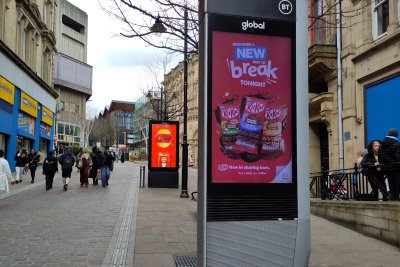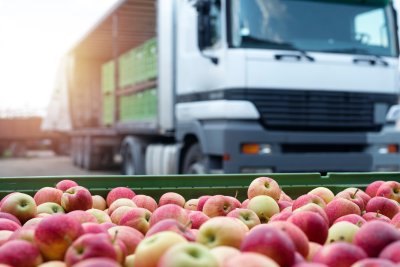 A child eating a burger and fries at a restaurant. . Credit: PV Productions: Shutterstock
A child eating a burger and fries at a restaurant. . Credit: PV Productions: Shutterstock
Restaurant and takeaway food is mostly unhealthy, says new report
A new report from Action on Salt and Action on Sugar has measured the healthiness of food on menus of a range of popular restaurants, cafes and takeaways, and finds the results very unappetising.
About a quarter of all the calories in the nation's diets now come from eating out in restaurants, coffee chains, cafes and takeaways, so ensuring this food is healthy and nutritious is increasingly important.
Sustain member organisation Action on Sugar/Action on Salt undertook to analyse the most popular food items offered by 19 of the 20 biggest and most popular out-of-home food chains, including pizzas, chicken dishes, burgers, baguettes and sandwiches. The companies covered include Subway, Pizza Express, Beefeater, KFC, Nando's, Pret a Manger, Gregg's, McDonalds, Starbucks, Costa Coffee, Papa John's, Burger King and Wetherspoon's, amongst others.
Their report found that the proportion of food that could be seen as healthy according to government nutrient profiling and traffic light labeling ranged from just 22% to 54% - which means up three quarters of the most popular items in some chains failed to meet nutritional guidance.
Dr Monique Tan, a lecturer at Queen Mary University London, who led the Action on Salt/Sugar analysis says:
"People used to see eating out as an occasional treat and that’s no longer the case. As a nation we eat more and more ‘out of home’ food. Given the majority of the food available ‘out of home’ is not healthy, it’s very likely that when you do go out to dine or have takeaway food, you will be having food that is harmful to your health.
"The dominance of unhealthy foods and drinks in the out of home sector is hugely alarming. While healthier options exist, this food environment makes it hard for people to make healthier choices."
Furthermore, the researchers found full ingredients lists and nutritional analysis very hard to uncover, making analysis for anyone in the public domain very difficult. Although recent legislation now requires large out-of-home companies to display calorie information on menus, the levels of salt, sugar, saturated fats are not easily available.
Dr Kawther Hashem, the report co-author and Head of Resarch and Impact at Action on Sugar (and a Sustain trustee) says:
“It is absurd that supermarkets are expected to be as transparent as possible about what they put in their products, from nutrition information, ingredients, allergens and portion size, but when eating out we are left in the dark. If companies continue to hide their nutrition information, there is little hope for consumers to choose the healthier options. The government needs to act now to resolve this unfair situation and level the playing fired.”
The report makes three key recommendations:
- Improve nutrition data availability and accessibility
- Develop a standardised measure of healthiness that takes into account portion size
- Implement mandatory reporting programmes
For more information, read the full report here.
Read coverage of this report in The Guardian
Children's Food Campaign: Campaigning for policy changes so that all children can easily eat sustainable and healthy food.
Sustain
The Green House
244-254 Cambridge Heath Road
London E2 9DA
020 3559 6777
sustain@sustainweb.org
Sustain advocates food and agriculture policies and practices that enhance the health and welfare of people and animals, improve the working and living environment, promote equity and enrich society and culture.
© Sustain 2025
Registered charity (no. 1018643)
Data privacy & cookies
Icons by Icons8







